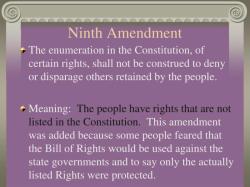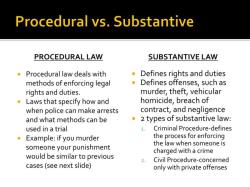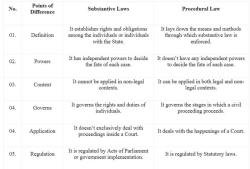Why do we have so many amendments on our Constitution?
The abundance of amendments to the United States Constitution reflects the flexibility of the document and the evolving nature of society. There are several reasons why the Constitution has been amended multiple times:
Changing Societal Values: The Constitution was drafted over 200 years ago, and societal values have evolved since then. Amendments allow for the incorporation of new values and beliefs, ensuring that the Constitution remains relevant.
Expanding Civil Rights: Many amendments, particularly those following the Civil War and during the Civil Rights Movement, aimed to expand civil rights and ensure equal protection under the law for all citizens. These amendments addressed issues such as slavery, voting rights, and discrimination.
Correction of Flaws: Amendments provide a mechanism for correcting flaws or oversights in the original document. For example, the Bill of Rights, the first ten amendments, was added to address concerns about individual liberties.
Adapting to Technological Changes: Amendments have been enacted to address issues arising from technological advancements or changes in communication, ensuring that constitutional protections apply to new circumstances.
Balancing Powers: Some amendments are introduced to rebalance powers between branches of government or to clarify the separation of powers. The Twenty-Fifth Amendment, for instance, addresses presidential succession and disability.
Expanding Democratic Participation: Amendments like the Nineteenth and Twenty-Sixth Amendments expanded the right to vote, reflecting a commitment to democratic principles and ensuring broader participation in the political process.
Addressing Unforeseen Circumstances: The framers recognized that they couldn't anticipate all future challenges. Amendments provide a way to address unforeseen circumstances and challenges that may arise over time.
Public Opinion and Political Will: Amendments often result from shifts in public opinion and political will. When there is a widespread consensus that a change is necessary, the amendment process allows for a formal and structured way to make those changes.
In summary, the abundance of amendments in the U.S. Constitution reflects the framers' foresight in providing a mechanism for adapting to changing circumstances and ensuring that the fundamental principles of the Constitution endure while addressing the needs of a dynamic and evolving society.
Understanding the reasons behind the numerous amendments in the Constitution
Understanding the Reasons Behind Constitutional Amendments:
The 27 amendments to the U.S. Constitution reflect a nation constantly adapting and grappling with new challenges. Understanding the reasons behind them requires considering multiple factors:
Addressing Specific Problems:
- Early amendments: The Bill of Rights (1-10) addressed immediate concerns like securing individual liberties against potential government overreach and ensuring a fair judicial system.
- Later amendments: Responded to specific historical contexts and societal changes, such as abolishing slavery (13th), enfranchising women (19th), or prohibiting alcohol (18th).
- Contemporary debates: Ongoing discussions about campaign finance, voting rights, or gun control might lead to future amendments seeking solutions to pressing issues.
Shifting Public Opinion and Values:
- Social movements: Civil rights movements played a crucial role in securing amendments like the 14th and 15th, expanding rights and addressing historical injustices.
- Changing societal norms: Public attitudes towards alcohol consumption led to the 18th Amendment's prohibition, later repealed by the 21st as societal acceptance shifted.
- Supreme Court rulings: Controversial court decisions can prompt calls for amendments, either to overturn them (e.g., Citizens United and campaign finance) or solidify principles (e.g., same-sex marriage and the 14th Amendment).
Political Power Dynamics:
- Federalism: Amendments like the 10th or 11th reflect ongoing tension between federal and state power, with each side seeking to define its boundaries and spheres of influence.
- Party politics: Control of Congress and state legislatures plays a crucial role in proposing and ratifying amendments, and partisan agendas can influence which issues come to the forefront.
- Interest groups: Advocacy groups and lobbying efforts can play significant roles in pushing for particular amendments that align with their interests.
Remember:
- The reasons behind each amendment are unique and multifaceted, requiring consideration of the historical context, societal values, and political dynamics at play.
- Not all proposed amendments are successful, and the high bar for ratification (three-fourths of states) emphasizes the need for broad consensus and compelling justifications.
- The amendment process itself is a tool for adapting the Constitution to changing circumstances and ensuring its enduring relevance in a dynamic society.
By understanding these various factors, you can gain a deeper appreciation for the reasons behind the U.S. Constitution's numerous amendments and their place within the nation's ongoing evolution.












